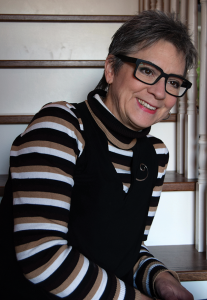Case Against Atheist Pastor Dismissed
 Gretta Vosper
Gretta Vosper After coming out as an atheist in 2015 while pastoring West Hill United Church in Toronto, Canada, Gretta Vosper found herself at the center of an ongoing debate in progressive church circles. Can someone be an ordained clergy person if they no longer believe in a theistic interventionist God? This question is particularly applicable in a congregationalist church such as West Hill where, supposedly, a significant decision like the hiring and firing of clergy is done by the congregation, not the larger denominational body.
The United Church’s Toronto Conference chose to act more hierarchical than congregational and in 2016 instituted a review of her ministry on the grounds that Vosper’s atheism made her “not suitable to continue in ordained ministry.” Her case was referred to the church’s General Council, which slated a hearing to determine if Vosper would be placed on the “discontinued service list.” Placement on this list would have, in effect, defrocked her and rendered her unable to pastor West Hill or any other United Church.
On November 8, 2018, the case was dismissed without any public acknowledgment of the actions that led to this decision. As reported by the UC Observer, Vosper will be allowed to keep her job. The Toronto Conference, Vosper, and West Hill United Church said in a joint statement that the parties had “settled all outstanding issues between them.” The United Church issued a second statement affirming its core beliefs, noting that the decision “doesn’t alter in any way the belief of The United Church of Canada in God, a God most fully revealed to us as Christians in and through Jesus Christ.” No further comments have been forthcoming.
As I reported at TheHumanist.com in 2016, Vosper and fellow atheist pastor Ryan Bell spoke about the shift toward secular-yet-spiritual communities on Bell’s podcast Life After God. In Vosper’s estimation, “The most progressive denomination in the world [United Church of Canada], as far as I’m concerned, has drawn a line in the theological sand and said, ‘This is as far as we’re going to go.’ What does this say for all liberal, mainline denominations?” Bell responded, “The church can only be progressive as long as it continues progressing.”
When I contacted Vosper by phone to assess her reaction to these events, she expressed surprise. “We were prepared to endure the lengthy rigors involved in a hearing of this nature,” she explained. Now that the case has been dismissed, she hopes the decision can create space for clergy to be able to explore their beliefs and engage within the context of community without fearing the loss of their positions or ordination status. “I hope my case emboldens other clergy to ask and challenge denominations to find the way of creating a world beyond the beliefs that divide us and are used for horrific things,” she said. “Let’s share the good.” To this end, Vosper hopes to create resources for the development of secular communities that have these multilayered social connections within them. “This creates a sense of subjective well-being and connects people to their communities,” she added.
Those wishing to track the history of Vosper’s case can search social media via the hashtag #heresytrial, which was used by Vosper and her supporters to document the hearings.
